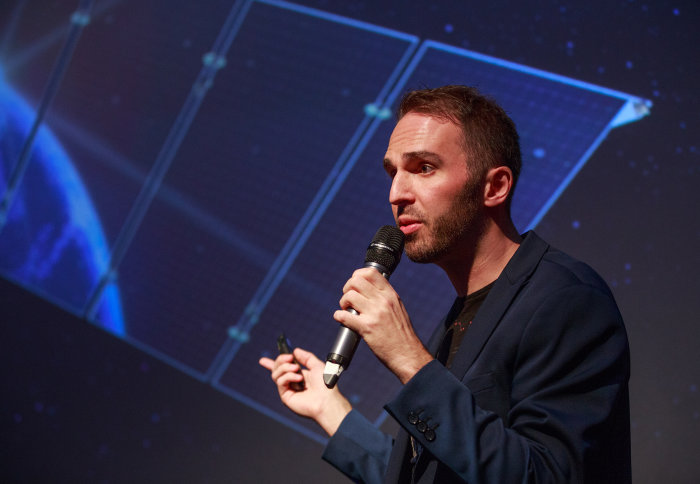New Stephen Hawking Fellow appointed to share the wonder of science

Dr Martin Archer
One of the first Stephen Hawking Fellows is joining Imperial’s Department of Physics to study space weather and inspire a love of science.
UK Research and Innovation (UKRI) announced today they have created nine Stephen Hawking Fellows, one of whom – Dr Martin Archer – will join Imperial in October. Dr Archer is tasked with furthering our understanding of the universe and sharing the wonder of science, carrying on Professor Hawking’s legacy.
Dr Archer will research the interplay between the Earth’s magnetic field and the wind of electrically charged particles blown off the Sun. This interaction forms a shield in space, protecting us against most of the harmful radiation from the Sun and more distant sources.
Sound waves bounce around the different regions of this shield, acting like different instruments in an orchestra that transfers energy into our atmosphere. Dr Archer’s research will focus on the part of the shield that creates drum-like vibrations, and the results could ultimately be used to improve forecasting of space weather and predict potential risks to satellites.
The wonders of science
Dr Archer's career started out in radio, having worked on Kiss FM, and he has subsequently used this experience in sharing science with varied audiences. As part of his fellowship, he will produce virtual reality experiences and a ‘magnetospheric drum kit’ to be used by artists, filmmakers and musicians in creating works for performance, as well as by communities that don't normally seek out or are underrepresented in science.
I'm incredibly excited to be one of the first of these fellows, especially as I remember thoroughly enjoying Professor Hawking's popular science books and television series while at school. Dr Martin Archer
Dr Archer said: “I've long been passionate about undertaking cutting-edge space science along with communicating and engaging the public with this research in new and innovative ways.
“It's fantastic that UKRI are supporting both of these through the Stephen Hawking Fellowships and I'm incredibly excited to be one of the first of these fellows, especially as I remember thoroughly enjoying Professor Hawking's popular science books and television series while at school. I'm very much looking forward to starting work on both of these activities at such a world-class scientific institution as Imperial later this year.”
Dr Archer will be joining the group of Dr Jonathan Eastwood, head of Imperial’s Space Lab. Dr Eastwood said: “We are very much looking forward to Martin arriving and implementing his innovative project, which blends his cutting-edge research with societal and community engagement.
“In particular, the exciting opportunities afforded by the Invention Rooms and other facilities at the White City campus, together with our growing programme of engagement in space science and engineering through the Imperial Space Lab network of excellence, will benefit tremendously from Martin’s input.”
Opening up scientific breakthroughs
Professor Stephen Hawking’s children, Lucy, Robert and Tim Hawking, said: “We are proud to be associated with this initiative, which builds on the legacy of our father by supporting research into these areas of science.
“One of his greatest achievements was opening up even the most complex scientific breakthroughs to the wider world and we hope that these Fellows are able to continue that important mission by inspiring people from all walks of life in the wonders of science.”

UK Research and Innovation Chief Executive, Professor Sir Mark Walport, said: “Professor Stephen Hawking pushed forward the boundaries of human knowledge, both through his research which transformed our understanding of the universe and his rare talent for communication.
“The Fellows announced today will continue his legacy, pushing the boundaries of knowledge and inspiring the public with the value and beauty of science.”
Article supporters
Article text (excluding photos or graphics) © Imperial College London.
Photos and graphics subject to third party copyright used with permission or © Imperial College London.
Reporter
Hayley Dunning
Communications Division